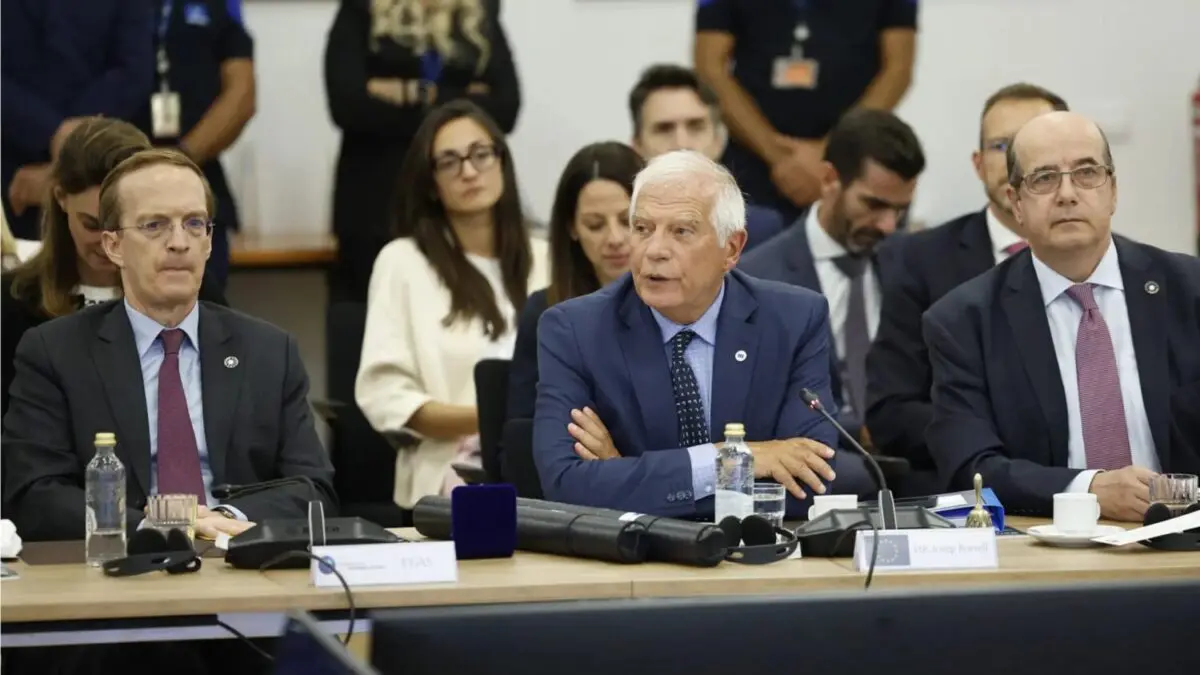In a statement that has sent ripples across the international community, the European Union has expressed its profound outrage over the death of Alexei Navalny, a prominent Russian opposition figure. The EU holds Russian President Vladimir Putin and the country’s authorities “ultimately responsible” for Navalny‘s demise.
“The European Union is outraged by the death of the Russian opposition politician Alexei Navalny, for which the ultimate responsibility lies with President Putin and the Russian authorities,” said the High Representative on behalf of the EU. The statement was made following a meeting at the Foreign Affairs Council, where deep condolences were extended to Navalny’s wife, Yulia Navalnaya, their children, family, friends, and all who collaborated with him for the betterment of Russia.
The EU has demanded that Russia permit “an independent and transparent international investigation into the circumstances of his sudden death.” It has vowed to coordinate closely with its partners to hold Russia’s political leadership accountable, hinting at the imposition of further sanctions as a consequence of their actions.
Navalny’s death has sparked a global outpouring of grief, with tributes being paid worldwide. However, in Russia, authorities have attempted to stifle these memorials, detaining several hundred individuals in the process. The EU has called for their immediate release.
Navalny’s return to Russia after surviving an assassination attempt involving the nerve agent “Novichok” — a substance banned under the Chemical Weapons Convention — marked him as a figure of immense bravery. Despite facing politically motivated charges and being isolated in a Siberian penal colony, Navalny continued his work, with his access to family severely restricted and his lawyers facing harassment.
The EU has consistently condemned Navalny’s poisoning and the politically motivated judgments against him, demanding his immediate and unconditional release and calling on Russia to ensure his safety and health.
“Throughout his life, Mr. Navalny demonstrated incredible courage, dedication to his country and his fellow citizens, and determination with his anti-corruption work across Russia,” the statement highlighted. It underscored the fear Navalny instilled in Putin and his regime, especially amidst Russia’s illegal war of aggression against Ukraine and the upcoming Russian Presidential elections in March.
Navalny’s death is seen as a “shocking” testament to the “accelerating and systematic repression in Russia.” The EU reiterated its call for the immediate and unconditional release of all political prisoners in Russia, including Yuri Dmitriev, Vladimir Kara-Murza, Ilya Yashin, Alexei Gorinov, Lilia Chanysheva, Ksenia Fadeeva, Alexandra Skochilenko, and Ivan Safronov.
This statement marks a significant moment in EU-Russian relations, reflecting the EU’s stance on human rights violations and its readiness to take action against those deemed responsible.







